第25章 At Christminster(2)
Down obscure alleys,apparently never trodden now by the foot of man,and whose very existence seemed to be forgotten,there would jut into the path porticoes,oriels,doorways of enriched and florid middle-age design,their extinct air being accentuated by the rottenness of the stones.It seemed impossible that modern thought could house itself in such decrepit and superseded chambers.
Knowing not a human being here,Jude began to be impressed with the isolation of his own personality,as with a self-spectre,the sensation being that of one who walked but could not make himself seen or heard.
He drew his breath pensively,and,seeming thus almost his own ghost,gave his thoughts to the other ghostly presences with which the nooks were haunted.
During the interval of preparation for this venture,since his wife and furniture's uncompromising disappearance into space,he had read and learnt almost all that could be read and learnt by one in his position,of the worthies who had spent their youth within these reverend walls,and whose souls had haunted them in their maturer age.Some of them,by the accidents of his reading,loomed out in his fancy disproportionately large by comparison with the rest.The brushings of the wind against the angles,buttresses,and door-jambs were as the passing of these only other inhabitants,the tappings of each ivy leaf on its neighbour were as the mutterings of their mournful souls,the shadows as their thin shapes in nervous movement,making him comrades in his solitude.In the gloom it was as if he ran against them without feeling their bodily frames.
The streets were now deserted,but on account of these things he could not go in.There were poets abroad,of early date and of late,from the friend and eulogist of Shakespeare down to him who has recently passed into silence,and that musical one of the tribe who is still among us.Speculative philosophers drew along,not always with wrinkled foreheads and hoary hair as in framed portraits,but pink-faced,slim,and active as in youth;modern divines sheeted in their surplices,among whom the most real to Jude Fawley were the founders of the religious school called Tractarian;the well-known three,the enthusiast,the poet,and the formularist,the echoes of whose teachings had influenced him even in his obscure home.
A start of aversion appeared in his fancy to move them at sight of those other sons of the place,the form in the full-bottomed wig,statesman rake,reasoner and sceptic;the smoothly shaven historian so ironically civil to Christianity;with others of the same incredulous temper,who knew each quad as well as the faithful,and took equal freedom in haunting its cloisters.
He regarded the statesmen in their various types,men of firmer movement and less dreamy air;the scholar,the speaker,the plodder;the man whose mind grew with his growth in years,and the man whose mind contracted with the same.
The scientists and philologists followed on in his mind-sight in an odd impossible combination,men of meditative faces,strained foreheads,and weak-eyed as bats with constant research;then official characters -such men as governor-generals and lord-lieutenants,in whom he took little interest;chief-justices and lord chancellors,silent thin-lipped figures of whom he knew barely the names.A keener regard attached to the prelates,by reason of his own former hopes.Of them he had an ample band -some men of heart,others rather men of head;he who apologized for the Church in Latin;the saintly author of the Evening Hymn;and near them the great itinerant preacher,hymn-writer,and zealot,shadowed like Jude by his matrimonial difficulties.
Jude found himself speaking out loud,holding conversations with them as it were,like an actor in a melodrama who apostrophizes the audience on the other side of the footlights;till he suddenly ceased with a start at his absurdity.Perhaps those incoherent words of the wanderer were heard within the walls by some student or thinker over his lamp;and he may have raised his head,and wondered what voice it was,and what it betokened.
Jude now perceived that,so far as solid flesh went,he had the whole aged city to himself with the exception of a belated townsman here and there,and that he seemed to be catching a cold.
A voice reached him out of the shade;a real and local voice:
'You've been a-settin'a long time on that plinth-stone,young man.What med you be up to?'
It came from a policeman who had been observing Jude without the latter observing him.
Jude went home and to bed,after reading up a little about these men and their several messages to the world from a book or two that he had brought with him concerning the sons of the university.As he drew towards sleep various memorable words of theirs that he had just been conning seemed spoken by them in muttering utterances;some audible,some unintelligible to him.One of the spectres (who afterwards mourned Christminster as 'the home of lost causes,'though Jude did not remember this)was now apostrophizing her thus:
'Beautiful city!so venerable,so lovely,so unravaged by the fierce intellectual life of our century,so serene!...Her ineffable charm keeps ever calling us to the true goal of all of us,to the ideal,to perfection.'